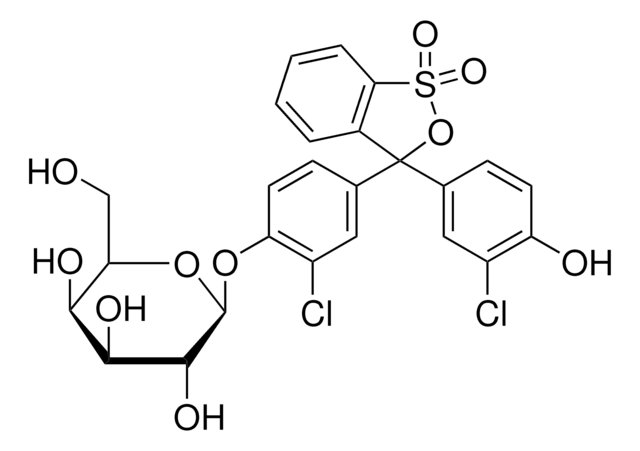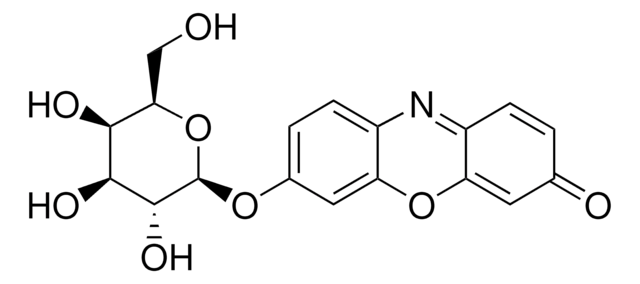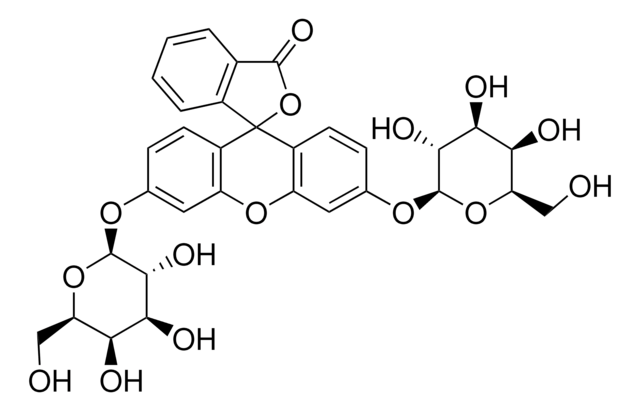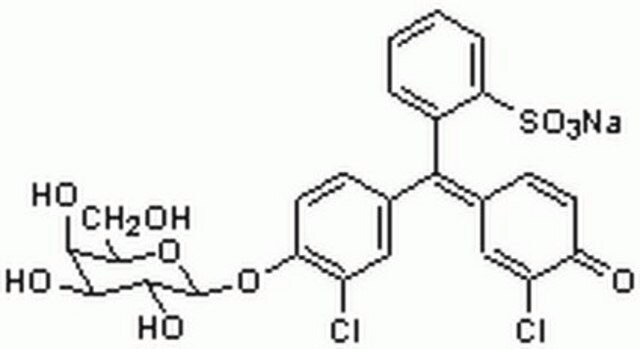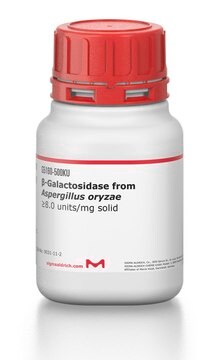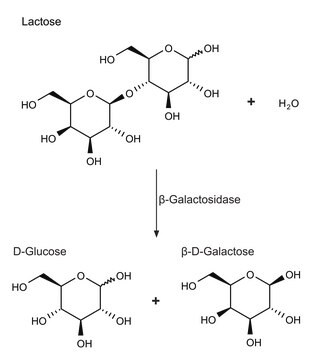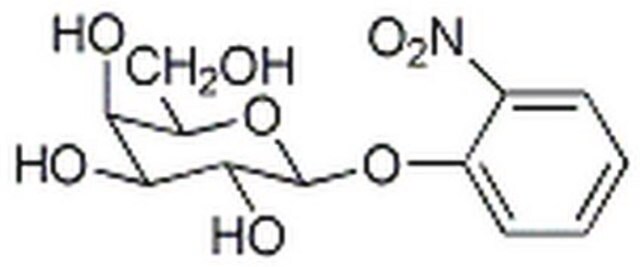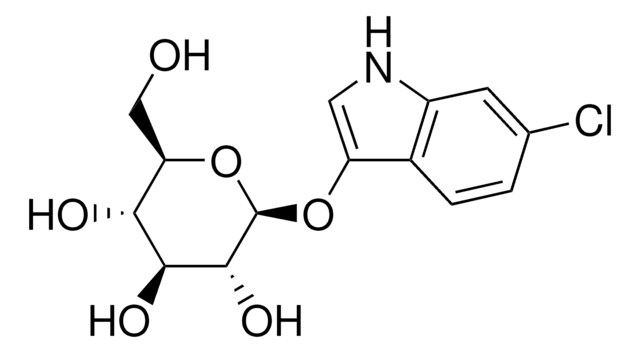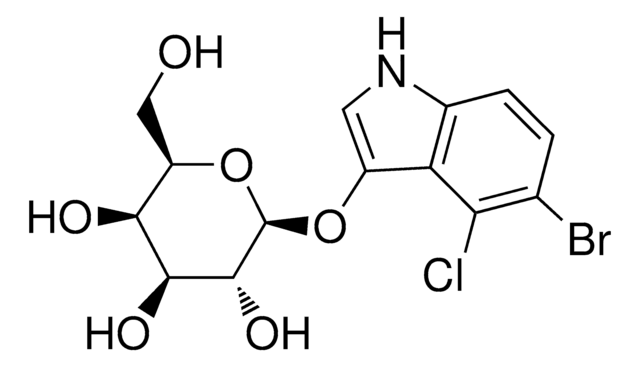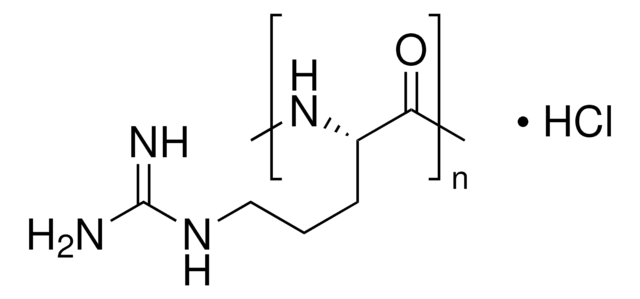59767
Chlorophenol Red-β-D-galactopyranoside
β-galactosidase, ≥90% (HPLC), powder or crystals
Synonyme(s) :
CPRG, Chlorophenol Red-β-D-galactoside
About This Item
Produits recommandés
Nom du produit
Chlorophenol Red-β-D-galactopyranoside, ≥90% (HPLC)
Essai
≥90% (HPLC)
Forme
powder or crystals
Solubilité
water: 20 mg/mL, clear, orange to very deep red
Température de stockage
−20°C
Chaîne SMILES
OC[C@H]1O[C@@H](Oc2ccc(cc2Cl)C(=C3/C=CC(=O)C(Cl)=C3)\c4ccccc4S(O)(=O)=O)[C@H](O)[C@@H](O)[C@H]1O
InChI
1S/C25H22Cl2O10S/c26-15-9-12(5-7-17(15)29)21(14-3-1-2-4-20(14)38(33,34)35)13-6-8-18(16(27)10-13)36-25-24(32)23(31)22(30)19(11-28)37-25/h1-10,19,22-25,28,30-32H,11H2,(H,33,34,35)/b21-12-/t19-,22+,23+,24-,25-/m1/s1
Clé InChI
YOUWVNCQJOMMEU-AETRGLENSA-N
Vous recherchez des produits similaires ? Visite Guide de comparaison des produits
Description générale
Application
- in paper-based cell-free protein expression system for target RNA detection
- in colorimetric detection of multiple clinically relevant mutations using a lacZ output gene
- in colorimetric assay for bacteria quantification
Autres remarques
Code de la classe de stockage
11 - Combustible Solids
Classe de danger pour l'eau (WGK)
WGK 3
Point d'éclair (°F)
Not applicable
Point d'éclair (°C)
Not applicable
Équipement de protection individuelle
Eyeshields, Gloves, type N95 (US)
Faites votre choix parmi les versions les plus récentes :
Déjà en possession de ce produit ?
Retrouvez la documentation relative aux produits que vous avez récemment achetés dans la Bibliothèque de documents.
Les clients ont également consulté
Notre équipe de scientifiques dispose d'une expérience dans tous les secteurs de la recherche, notamment en sciences de la vie, science des matériaux, synthèse chimique, chromatographie, analyse et dans de nombreux autres domaines..
Contacter notre Service technique